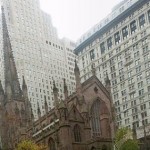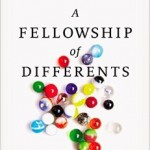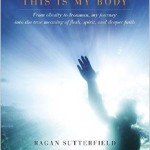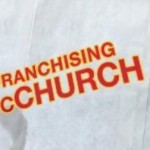David Owen has long been one of our favorite thinkers here at Englewood; his book Green Metropolis was selected by The Englewood Review of Books as one of the Best Books of 2009. [ Read our review // Watch a video of a lecture related to the book ]
I was recently alerted to the fact that he published a new book earlier this year (that somehow slipped under our radar), entitled:
The Conundrum: How Scientific Innovation, Increased Efficiency, and Good Intentions Can Make Our Energy and Climate Problems Worse
Paperback: Riverhead Books, 2012.
Buy now: [ Amazon ] [ Kindle ]
I was blown away by the trailer for this book because it resonates with the Slow Church vision and I think you will be too (It is well worth the 3-1/2 minutes!)
Given that I have not yet read the book, here are a few thoughts that jumped out at me from the trailer:
The questions that Owen raises challenge us to reflect on whether our means fit the ends we desire (a challenge that we address at length in the Slow Church book…)
Any progress toward a truly sustainable world, must address (at least) these three roadblocks:
1) Our individualism/fragmentation.
A sustainable world is a deeply integrated social one. We need to confront our deep desires for privacy, self-reliance, etc, that propel is in the direction of isolation. Truly sustainable solutions are ones that bring people together, and interweave their lives in a particular place.
2) Our failures of imagination
As Owen emphasizes here. it is not good enough to do the same sorts of things better or more efficiently. We need renewed and transformed social imaginations, new more-integrated ways of being together, and sharing life together in a place.
3) Our self-indulgent desires
It is our desires for mobility, consumption, etc. that drive the over-consumption that, as Owen observes here, is outpacing energy-efficient technology. We need a transformation of our desires, away from the selfishness of indulgence and over-consumption and toward care for our neighbors and our places. (This point is one that has been on my mind recently and one that you will undoubtedly hear more about in the weeks to come here on the Slow Church blog.)
————
So, what is our best hope for tackling these roadblocks to sustainability?
In my mind, it is our local churches, energizing life and health in our places (what our friends at the Parish Collective, call “parish life”). Church communities, to the extent that we are faithful to our calling, are uniquely situated to tackle these challenges. We are a communities, people gathered to share life together, learning as we do so to prefer others to ourselves. As we submit ourselves to the reconciling work that God desires in our places, our minds and imaginations are transformed (to paraphrase Romans 12:1-2). And finally, churches are one of the few places in our contemporary world where there is space (and theological motive) for serious reflection on reining in our rampant desires.












